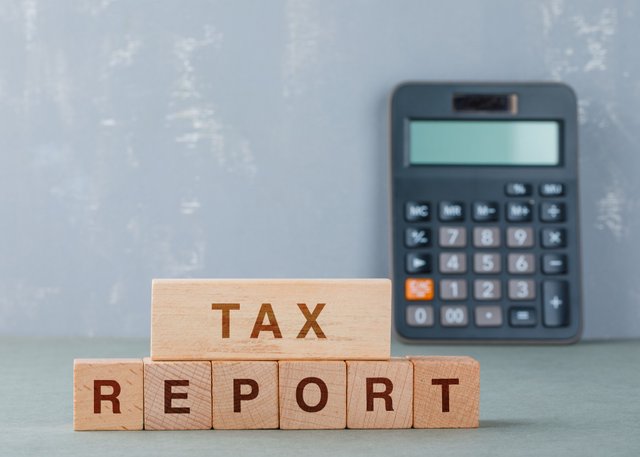How can we avoid Crypto Taxes by living in Cryptocurrency?
Avoiding Crypto Taxes: |
|---|
Living entirely in cryptocurrency can present certain challenges, including tax implications. In most countries, cryptocurrency is considered an asset or property, which means that gains or losses from its sale or exchange are subject to taxes. However, there are a few ways to potentially minimize or avoid crypto taxes if you decide to live solely in cryptocurrency. In this article, we will explore some of the options.
Spend Cryptocurrency Directly: |
|---|
One of the easiest ways to avoid crypto taxes is to use cryptocurrency for your daily expenses. Many merchants and online retailers now accept cryptocurrency payments, allowing you to use your digital assets to purchase goods and services. By spending your cryptocurrency directly, you are not triggering any capital gains tax events, which are typically incurred when you sell or exchange cryptocurrency.
Use Cryptocurrency Debit Cards: |
|---|

Freepik
Another option is to use a cryptocurrency debit card, which allows you to spend your cryptocurrency at any merchant that accepts traditional debit or credit cards. These cards convert your cryptocurrency into fiat currency at the time of the transaction, which means that you are not technically selling your cryptocurrency and therefore not triggering any taxable events.However, it's important to note that there may still be fees associated with using cryptocurrency debit cards, including transaction fees and exchange fees. Additionally, depending on your location, there may be limits on the amount of cryptocurrency you can convert to fiat currency each day or each transaction.
Hold onto Cryptocurrency for more than a year: |
|---|
In many countries, including the United States, long-term capital gains tax rates are lower than short-term capital gains tax rates. Short-term capital gains are profits made from the sale or exchange of an asset held for less than a year, while long-term capital gains are profits made from the sale or exchange of an asset held for more than a year.If you plan to live in cryptocurrency, it may be worth considering holding onto your digital assets for longer than a year to take advantage of lower long-term capital gains tax rates. Of course, this strategy requires a certain level of patience and discipline, as it may not always be practical or feasible to hold onto your cryptocurrency for an extended period of time.
Consider moving to a country with favorable Crypto Tax Laws: |
|---|
.jpg)
Freepik
Some countries have more favorable tax laws for cryptocurrency holders than others. For example, in Portugal, cryptocurrency is not subject to income tax or capital gains tax, making it an attractive destination for those who want to live in cryptocurrency without incurring significant tax liabilities.If you are considering moving to another country to take advantage of more favorable crypto tax laws, it's important to research the tax laws and regulations in your destination country carefully. Additionally, you should consult with a tax professional to ensure that you fully understand the tax implications of your decision.
Use Tax Optimization Strategies: |
|---|

Freepik
Finally, there are a number of tax optimization strategies that can help you minimize your crypto tax liabilities. For example, you may be able to offset capital gains with capital losses from other investments or utilize tax-loss harvesting techniques to strategically sell cryptocurrency at a loss in order to offset gains.There are also a variety of cryptocurrency tax software tools available that can help you track your cryptocurrency transactions and calculate your tax liabilities. These tools can be especially helpful if you are managing a large portfolio of digital assets or engaging in frequent trades and exchanges.
Conclusion: |
|---|
Living in cryptocurrency can be an exciting and potentially lucrative way to manage your finances, but it's important to understand the tax implications of your decision. By spending cryptocurrency directly, using cryptocurrency debit cards, holding onto cryptocurrency for more than a year, moving to a country with favorable crypto tax laws, and utilizing tax optimization strategies, you may be able to minimize or avoid crypto taxes altogether. However, it's important to consult with a tax professional to ensure that you are complying with all applicable tax laws and regulations.
Special Thanks |
|---|
Regards |
|---|

Directly transferred @azeem22 account steem from your account. What is his relationship with you? Why did you do that?
It's been a long time since I created an account but after doing achievement 1. I quit because I wasn't much interested in it but as soon as my friends were working on this platform and they were getting good support. So I also decided to start working again, when my achievement, the reward of 1 post, could not be sold at 8 steem binance alone, so I sent @azeem22 to the account which Later I came to know that we can't transfer from account to account, so now that I have started working again, I have created my own binance so that now I can send my steems etc. In order to use my own binance, we also shared a picture with you on discord as a group in which we did our own verification.